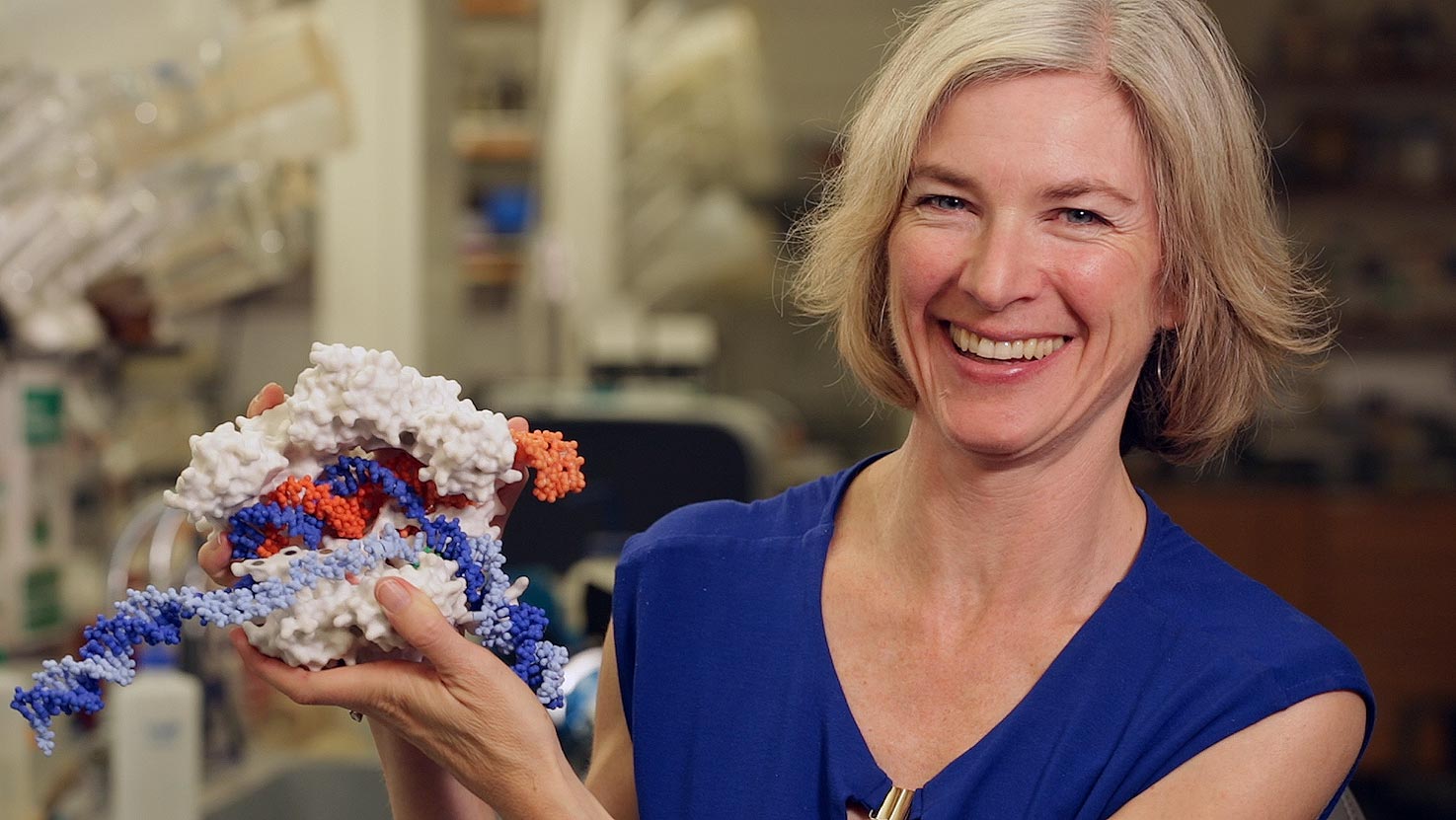
Jennifer Doudna and Emmanuelle Charpentier: Behind the Development of CRISPR Genome Editing
How CRISPR went from a small curiosity to a Nobel-Prize-winning breakthrough
With the announcement that IGI founder Jennifer Doudna shared the 2020 Nobel Prize in Chemistry with her collaborator Emmanuelle Charpentier of the Max Planck Institute, we wanted to look back at the origins of the work developing the revolutionary CRISPR-Cas9 genome-editing technology. Since the groundbreaking 2012 paper in Science, the CRISPR-Cas9 system has been used worldwide in basic research uncovering fundamental truths about living organisms, and in diverse applications in disease diagnosis, medical therapeutics, agriculture, bioenergy, and more.
Setting out to understand how bacteria defend themselves against viruses, Doudna, Charpentier, and colleagues began studying a curious bacterial immune system called CRISPR. As they discovered how the system works, they saw the opportunity to tweak it to create a technology that could edit the genes of almost any living being.
Learn about CRISPR basics, and watch the video below or listen to “Update: CRISPR” from WNYC’s Radiolab to learn more about the origins of CRISPR-Cas9 technology:
Radiolab: “Update: CRISPR”
This innovation has permanently changed the course of biology, medicine, agriculture, and climate research. Scientists have used this technology to alter the DNA of hundreds of organisms, treat human diseases, engineer disease- and drought-resistant crops, and decipher previously unanswerable questions about the human genome.
In 2014, Doudna founded the Innovative Genomics Institute, a collaboration between UC Berkeley and UC San Francisco that brings together the best researchers from the Bay Area. As the President and Chair of the Governance Board, she guides the IGI in its mission to develop and deploy genome-editing technology for the public good. Under her leadership, IGI research focuses on advancing genome-editing technology, treating human diseases, and developing sustainable agriculture to end hunger and withstand climate change. IGI is also committed to understanding the societal impacts of genome-editing technology, helping guide responsible regulation, and engaging the public in this scientific revolution.
In addition to her scientific achievements, Doudna spearheads the global conversation surrounding the ethical and regulatory implications of genome editing. The legacy of CRISPR technology will reverberate for generations, impacting the environment, human health, and beyond.
To explore how CRISPR could — or should — be used, watch Doudna’s TED Talk:
And watch the 2019 documentary Human Nature from Executive Produce Dan Rather and The Wonder Collaborative (preview below):
Find more CRISPR resources in our multimedia library, start with the basics with CRISPR 101, read the Nobel Prize announcement, or take a virtual field trip to the Innovative Genomics Institute.
You may also be interested in

Doudna and Charpentier Receive 2016 L’Oréal-UNESCO For Women In Science Award

Doudna Awarded Breakthrough Prize in Life Sciences

Jennifer Doudna Wins 2020 Nobel Prize In Chemistry
